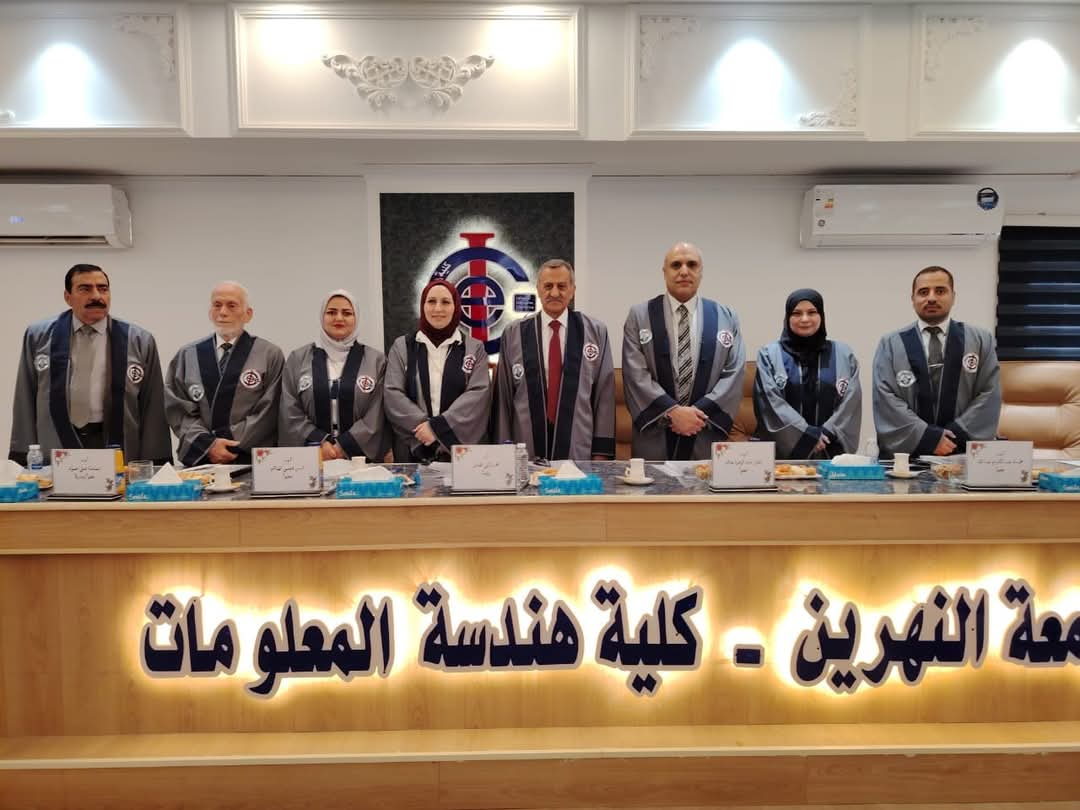Visitors: 25376637 Views
Done By: Department of Biomedical Engineering
Post Date: 2024-12-03
Last Browse: 2025-07-03

Assistant Professor Dr. Anas Qusay Hashim participated as a member of the public PhD defense committee for student (Israa Laith Salem), which took place at the College of Information Engineering, Department of Information and Communications Engineering. The dissertation was titled: Autism Spectrum Disorder (ASD) is a neurodevelopmental disorder characterized by impaired communication and social interaction, along with restrictive and repetitive behavioral patterns. In recent years, there has been a focus on improving healthcare systems through collaboration between the Internet of Things (IoT) and Brain-Computer Interface (BCI) applications, to be used in a wide range of assistive applications for individuals with autism. In this thesis, a BCI-based IoT system was proposed as part of a feedback loop for treating autism spectrum disorder, through the implementation of a real-time emotion recognition system using EEG brain signals. The proposed system structure begins by acquiring EEG signals from a child with autism, then analyzing and classifying them to display them as emotion images on a dedicated application for the parents or therapist. The brain signals were analyzed using a time-frequency analysis with four-level 4-DWT, and two proposed machine learning classification algorithms, Naive Bayes and ANN, were applied. A dataset was created for EEG signals from a group of children with autism and typically developing children by recording the neural responses of the participants while watching a set of emotion-evoking videos. This dataset is the first of its kind in Iraq and is linked to the cultural and linguistic context of individuals with autism within Iraq.
"Internet of Things to Assist Individuals with Autism Spectrum Disorder."